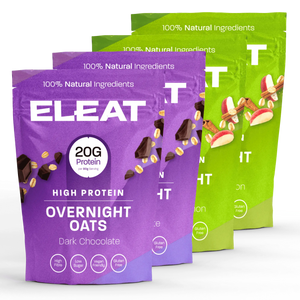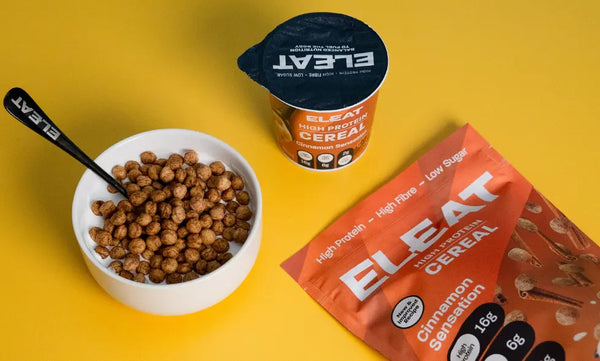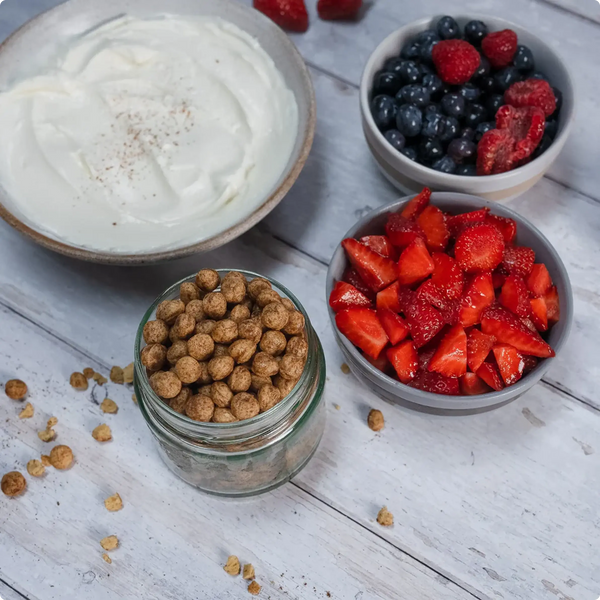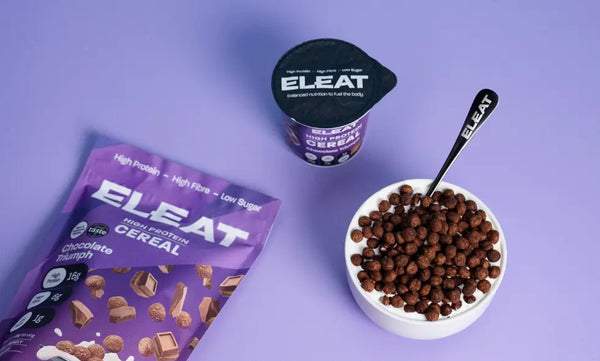In this article:
Ever feel bloated after meals, constantly fatigued, or more stressed than usual, and can’t quite figure out why? You’re not alone. More and more people are discovering that these everyday symptoms might be tied to their gut. That’s where the gut health benefits of prebiotics come in, supporting digestion, immunity, and even mental clarity from the inside out.
Gut health has become a major wellness focus, and while probiotics often steal the spotlight, prebiotics are just as essential. They serve as the “food” for your good gut bacteria, helping them grow and thrive. Products like Bimuno, a well-researched prebiotic supplement, are designed to selectively feed the beneficial microbes in your gut, giving you a targeted way to support your microbiome.
But can a simple fibre really make that much of a difference?
Let’s explore how prebiotics can help build a healthier gut, and a healthier you.
What Are Prebiotics?
Prebiotics are non-digestible fibres that act as nourishment for the beneficial bacteria in your gut. Unlike probiotics, which introduce live bacteria into the system, prebiotics help the good microbes already living in your digestive tract grow stronger and more effective.
You can find prebiotics in foods like garlic, onions, bananas, leeks, and chicory root, but many people don’t get enough through diet alone. That’s where supplements like Bimuno come in, offering a targeted, scientifically backed way to feed the right types of bacteria, especially Bifidobacteria, which are key to gut balance.
When combined with probiotics or used on their own, prebiotics create a healthy environment where your gut flora can flourish.
The Gut Microbiome Explained
Your gut is home to trillions of microorganisms, bacteria, fungi, and viruses, that make up what's known as the gut microbiome. Far from just breaking down food, this microbial ecosystem impacts digestion, immune function, metabolism, and even your mood.
When your microbiome is in balance, your body runs more smoothly. But when it’s out of sync, something called dysbiosis, you might experience issues like bloating, low energy, brain fog, or recurring illness.
That’s where prebiotics shine. By feeding beneficial bacteria, prebiotics help restore balance and promote a resilient, diverse microbiome. Ingredients like the unique fibre blend found in Bimuno are designed to selectively support the growth of helpful bacteria, making it easier for your gut to function at its best.
Top Gut Health Benefits of Probiotics
So how exactly do prebiotics improve your gut and your overall well-being? Here are some of the top benefits:
Smoother Digestion
Prebiotics support the growth of bacteria that assist in breaking down food, absorbing nutrients, and maintaining regularity. This can lead to less bloating, fewer digestive upsets, and more comfortable digestion overall.
Bimuno, for example, has been shown to increase levels of Bifidobacteria—a group of friendly bacteria linked to improved digestive comfort and gut health.
Stronger Immune Defense
Since a large portion of your immune system lives in your gut, nurturing that environment helps build a better defence system. Prebiotics can enhance immune function by encouraging the growth of bacteria that help modulate inflammation and support immune response.
Better Mood and Mental Wellbeing
Thanks to the gut-brain connection, what happens in your digestive system doesn’t stay there. A balanced microbiome may help reduce symptoms of anxiety and depression. Prebiotics, including those in Bimuno, have shown potential in influencing brain chemistry via the gut, helping to support emotional balance.
Reduced Inflammation
Chronic, low-grade inflammation has been linked to gut imbalance. Prebiotics can help by supporting the bacteria that produce short-chain fatty acids like butyrate, which help reduce inflammation in the gut and throughout the body.
Restoring Balance After Antibiotics
While antibiotics are effective at killing harmful bacteria, they often take good bacteria down with them. Prebiotics can help rebuild a healthy microbial community by feeding the right strains, supporting your recovery and helping prevent common post-antibiotic issues like diarrhoea or sluggish digestion.
How To Add Prebiotics To Your Diet
Incorporating prebiotics into your daily routine is one of the simplest (and most underrated) ways to support your gut health. Whether you’re just getting started or looking to optimize your gut-friendly habits, here’s how to do it:
1. Eat More Prebiotic-Rich Foods
Prebiotics are naturally found in a variety of plant-based foods, particularly those high in specific types of fibre. Some great options include:
- Garlic
- Onions
- Leeks
- Asparagus
- Bananas (especially slightly underripe ones)
- Chicory root
- Jerusalem artichokes
- Oats
Incorporating these into your meals regularly helps create a nourishing environment for your gut bacteria to thrive.
2. Supplement When Needed
While food should always come first, sometimes it’s hard to get enough prebiotics through diet alone, especially if you’re on a restricted diet or your digestive system is particularly sensitive. That’s where a supplement like Bimuno can be incredibly helpful.
What makes Bimuno stand out is that it contains a unique, targeted prebiotic (GOS - galactooligosaccharides) that’s been scientifically shown to selectively feed Bifidobacteria, some of the most beneficial bacteria in your gut. It’s tasteless, easy to mix into drinks or food, and gentle enough for daily use.
3. Consistency is Key
Like any wellness habit, the gut health benefits of prebiotics build over time. Aim to include prebiotic foods or supplements in your routine daily. Regular intake helps maintain a healthy, stable microbiome that can support your digestion, immunity, and even mental clarity in the long run.
Are Prebiotics Right For You?
For most people, prebiotics are a safe and effective way to support long-term gut health. They work behind the scenes, quietly feeding the good bacteria that help keep your digestive system balanced and your body feeling its best.
That said, everyone’s gut is unique, and how you respond to prebiotics can depend on your current microbiome, overall health, and dietary habits.
When Prebiotics Can Be Especially Helpful:
You experience frequent bloating, constipation, or irregular digestion.
You’ve recently taken antibiotics and want to help restore your gut balance.
You're dealing with low energy, brain fog, or mild mood swings that may be tied to gut health.
You want to strengthen your immune system naturally.
You’re already taking probiotics and want to boost their effectiveness.
Things to Keep in Mind:
Start slowly: If your gut is sensitive or you're new to fibre, gradually introduce prebiotics to avoid temporary bloating or discomfort.
Listen to your body: Some people with conditions like SIBO (Small Intestinal Bacterial Overgrowth) or IBS may need to be more cautious and consult a healthcare provider before adding prebiotics.
Choose the right type: Not all fibres are created equal. Supplements like Bimuno are designed to be gentle, targeting beneficial bacteria without feeding potentially harmful ones.
Ultimately, if you're looking for a simple, science-backed way to support your gut health, prebiotics are a smart addition to your routine, especially when used consistently and thoughtfully.
Conclusion: Ready To Give Your Gut Some Love?
When it comes to gut health, we often focus on the bacteria inside us, but prebiotics deserve just as much attention. These fibres provide the essential fuel that helps your good bacteria thrive, supporting everything from digestion to immunity and even mental well-being. Whether you’re enjoying fibre-rich foods or taking a supplement like Bimuno to boost your gut’s microbiome, the benefits of prebiotics are clear.
So, why not start small? Add a few prebiotic-rich foods to your meals today or consider adding a prebiotic supplement to enhance your gut health routine. Your gut, and your body, will thank you.
















